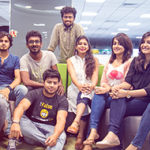There is a drastic increase in the value of capital investment. This is in return growing the landscape of emerging African technology. The Kenyan Silicon Savannah ecosystem has been a leading player of narrative in the last decade. But the development of infrastructure opportunities in Northern Africa has been an attractive factor to the investment community of the Silicon Valley. Global tech entrepreneurs that are Africans in diaspora are heading back home or acquiring dual citizenship with the hope of getting profitable opportunities to launch new businesses in their home countries.
The innovation drive is to support both socio-economic and economic development. Companies all over Africa are coming up with new applications, adopting the modern technologies from various countries or modifying the already existing technologies to make them viable in the African markets commercially. Algiers in Algeria has been pivotal in the drive with many leading VCs of Silicon Valley attending the Smart Cities Global Technology and Investment Summit. The two-day summit started today, and it will end tomorrow. IValley Innovation Center’s MD Paddy Ramanathan is attending the event with high expectations that Africa is in a position of developing champions of the next technology in Algiers. He also hopes that the continent can adopt the mantra of Silicon Valley to learn fast by working together with startups to fast-track infrastructure development and innovation. According to him Algiers in evolving into a genuinely dependable market that is rephrasing the entrepreneurship rules. He added that the city is allowing the new generation of investors to grow a unique ecosystem.
Analysis carried out by Crunchbase, and TNA Analysis showed that in 2014 there was over $400 in VC funding for Africa’s startups. It also projected that there would be not less than $1 billion in VC investment in African tech startups for 2012 to 2018. Companies in Africa are keeping a close tab on the leapfrog technologies using Artificial Intelligence and Blockchain to build new technologies to make them viable in the African markets commercially. An entrepreneur at Silicon Valley Mehdi Sif said that in this era of digitization, there is an opportunity to modernize, automate and change. All these involve tackling problems, at the crossroads of operation, information, and communications technologies bridging previously separated administrative domains, supply chains, and organizations. This is illustrated by the high number of entrepreneurs from Silicon Valley meeting at Algiers.
But African countries have a different entrepreneurial and financial ecosystem compared to the US. This is notably different from the ones at Silicon Valley. It is quite essential when it comes to African countries adopting the innovation ecosystem to the specific data. Makhtar Diop, the vice president of World Bank, released a report in 2017 that stated that African countries could invest in three different aspects of innovation policy needs to increase the capacity of innovation. The first policies are organization and managerial capabilities. The two should be the first one to be adopted since they allow organizations to use the real innovation and start partnering and piggybacking on the other countries’ advances. The second policy is developing building technological capabilities so that African countries may adapt and develop many of their innovations. The last step is a long-term investment in technological programs/.
Kiran Inampudi of Alchemist Accelerator said that it is essential for traders to invest within the local ecosystem. This helps in the transfer of technology and knowledge to offer jobs and improve skills. Africa has more than 30 million living abroad. This group has the potential of becoming a significant source of development partnerships and financing. The African investors are socially conscious compared to their male counterparts because of cultural and social links and their deep understanding of local context. The investors are in a position to transfer their technical knowledge to narrow the skill gap in engineering, technology, science, and math fields. Dr. Riad Hartani, from Smart City Algiers, said that Silicon Valley is all about talent and everything connected to it. He added that mobilization of effective expertise is key to the success of fostering innovation. According to him, Algiers has that as a goal, and it shows the opportunity that investors with ambition can use their knowledge and inculcate that into the local ecosystem. This is the key point that is being discussed at the Algiers Summit.
Furthermore, the summit will be pitching the startups that are newly launched and incubated by Smart City Project. Founded by Abderrahman Aitsaid, Ursiniaa is working on creating IoT solutions for applications of Smart City, and it believes that the project will be the beginning of new Algiers. African hubs are offering a platform where young entrepreneurs, engineers, and students come together to uncover energy, skills, and spirit of innovation. The main point is working together to make it work out. Isiniaa’s CEO Dr. Amine Bouabdallah agreed with the founder’s statement. He said that the Algiers Smart City is the first time that individuals from across the globe are gathering to discuss the issues of the city and how to link with the global ecosystem to narrow the tech gap.



